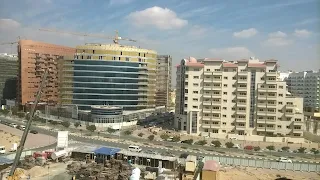License plates across Dubai are getting a
facelift as part of a new regimen being introduced by the Roads and Traffic
Authority (RTA).
In a new campaign rolled out by the RTA in a
public announcement, roads officials are asking vehicle owners who own
registered number plates and those who don’t own their plates to upgrade to
new-look plates.In its announcement, the RTA said it “would like all car owners
with owned registration number plates from A to Z to upgrade to the new plate
design. And from May 2018, all car owners with unowned A, B and C number plates
are requested to upgrade to the new plate design.”
The RTA encouraged drivers to sign up for the
new regimen.
“Be first to upgrade your car look,” it said in
its announcement.
Details regarding upgrade costs for owned
registered plates were not revealed. But for unowned plate holders of A, B and C,
the RTA said there are minimal costs.
For example, for short-length plates, upgrade
cost is Dh35 per plate while for longer plates, the cost is Dh50.
For new plates, the cost will be Dh400, the RTA
said, while luxury licence plates will cost Dh500.
For more details, visit rta.ae or call 800
9090.
New series up for auction
The RTA, meanwhile, said in a statement on
Friday that it is offering a new series of licence plates at an auction next
month.
The Licensing Agency of Roads and Transport
Authority (RTA) is intending to offer 300 licensing plates comprising four and
five digits in its 52nd online auction. Plates on offer bear the Codes J, K, L,
M, N, O, P, Q, R, S and T. Registration of bidders starts on Sunday.
The bidding will start at 8 am on March 4 and continue for five days.
“Numbers sold in this auction will be subject
to a five percent VAT. The wide public
participation in online or open auctions and the positive competition to grab
such numbers underscore the importance of holding these auctions in bringing
happiness and satisfaction to number plate enthusiasts,” said Sultan Al
Marzouqi, director of Vehicle Licensing, Licensing Agency.
“Participation in the auction requires the
client to have an account opened through RTA’s website (www.rta.ae) or use the
‘New User’ link to obtain a username and password. For a new registration, the
user is required to have either a vehicle registered in Dubai or a driver
licence issued from Dubai. For participating in the auction, the bidder is
required to issue a security cheque to RTA amounting to Dh5,000 and deposit it
at one of RTA’s Customer Happiness Centres at Umm Al Ramool, Bur Dubai, Deira
or Al Twar Municipal Centre. For payment by a credit card, the client must also
deposit Dh5,000 as security. Clients also have to pay Dh120 as participation
fees through the website (www.rta.ae)” said Al Marzouqi.




